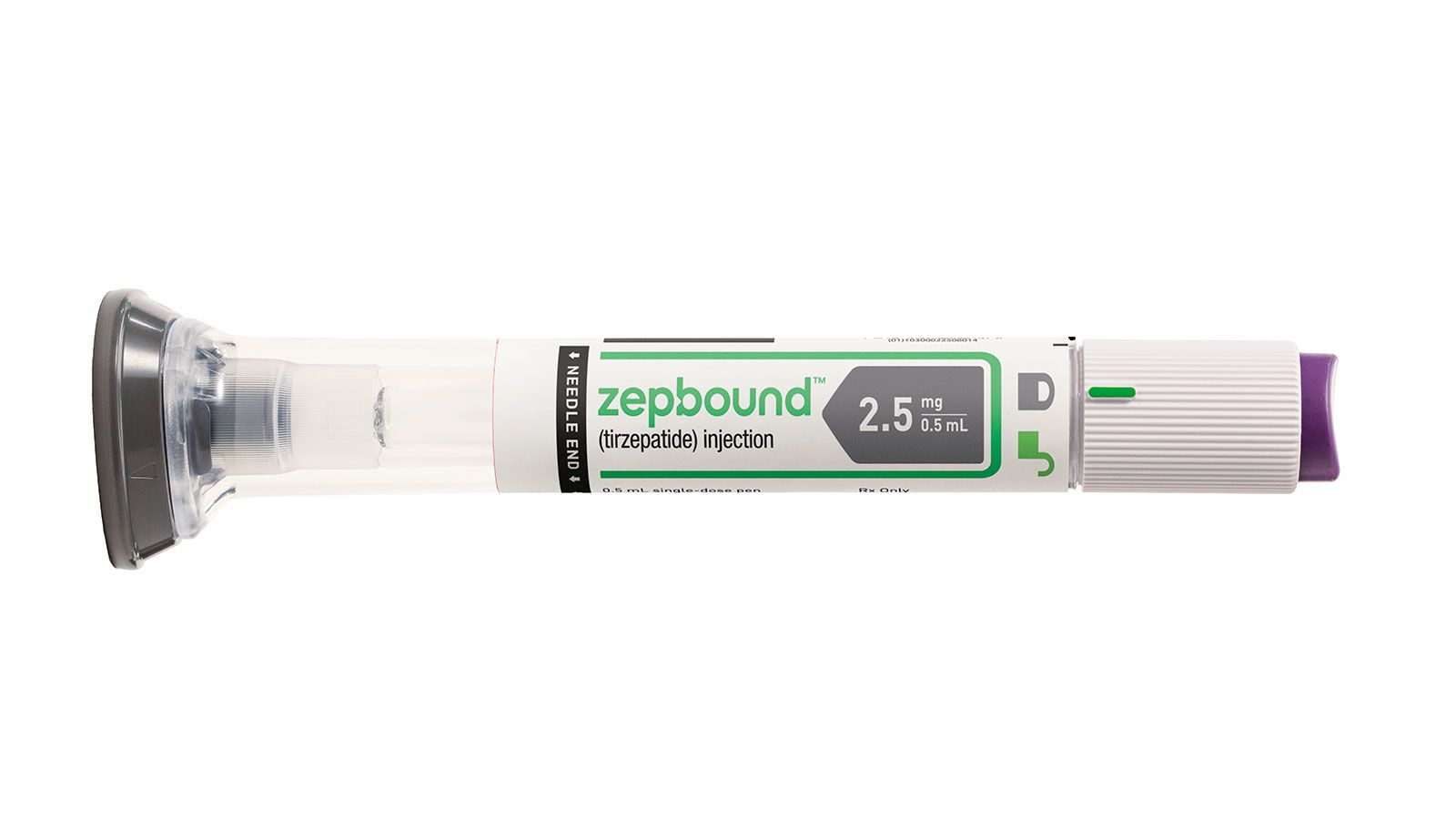Zepbound and Semaglutide are different medications. Zepbound is a pain relief drug, while Semaglutide treats type 2 diabetes.
Zepbound is widely used for its pain-relieving properties, offering quick and effective relief from various types of pain. Semaglutide, on the other hand, is a medication primarily prescribed for managing type 2 diabetes by helping to control blood sugar levels.
It mimics a natural hormone that stimulates insulin release in response to meals. Both drugs serve crucial but distinct roles in medical treatments. Understanding their specific applications and benefits is essential for effective healthcare management. Always consult healthcare professionals for personalized advice and treatment plans.

Credit: www.primehealthpc.com
Zepbound Vs Semaglutide: Key Distinctions
Understanding the differences between Zepbound and Semaglutide is crucial. Both have unique characteristics and applications. This section breaks down the key distinctions.
Chemical Structure Variations
Zepbound and Semaglutide differ in their chemical structures. Zepbound’s structure is simpler. It has fewer complex bonds. Semaglutide, however, has a more intricate structure. It includes multiple functional groups.
| Characteristic | Zepbound | Semaglutide |
|---|---|---|
| Chemical Complexity | Simple | Complex |
| Functional Groups | Fewer | Multiple |
Therapeutic Uses And Applications
Zepbound and Semaglutide serve different medical needs. Zepbound is primarily used for diabetes management. It helps regulate blood sugar levels. Semaglutide has broader applications. It is used for both diabetes and weight management.
- Zepbound: Diabetes management
- Semaglutide: Diabetes and weight management
Different medical conditions may require specific treatments. Understanding these key distinctions helps in making informed choices.
The Mechanism Of Action
Understanding the mechanism of action is essential when comparing Zepbound and Semaglutide. These two drugs have unique ways of working in the body. This section will break down how each medication operates, helping you grasp their differences.
How Zepbound Works In The Body
Zepbound is known for its complex mechanism of action. It primarily targets specific receptors in the body. By binding to these receptors, it influences various cellular activities.
Here is a breakdown of its effects:
- Activates G-protein coupled receptors
- Triggers signal transduction pathways
- Modulates gene expression
These actions result in several physiological changes. These changes may include pain relief, anti-inflammatory effects, or other therapeutic outcomes.
Semaglutide’s Role In Glucose Regulation
Semaglutide is specifically designed to regulate blood sugar levels. It mimics a natural hormone called GLP-1 (glucagon-like peptide-1). This hormone plays a crucial role in glucose metabolism.
Here’s how Semaglutide works:
- Increases insulin secretion from the pancreas
- Decreases glucagon release
- Slows down gastric emptying
These actions help lower blood sugar levels and improve glycemic control. It is particularly useful for people with type 2 diabetes.
| Aspect | Zepbound | Semaglutide |
|---|---|---|
| Primary Target | G-protein coupled receptors | GLP-1 receptors |
| Main Effect | Various cellular activities | Glucose regulation |
| Therapeutic Use | Pain relief, anti-inflammation | Type 2 diabetes management |
Efficacy In Diabetes Management
Managing diabetes effectively is crucial for maintaining health and quality of life. Two popular medications for diabetes management are Zepbound and Semaglutide. Both have shown promising results in clinical settings. Let’s delve into their efficacy in diabetes management.
Clinical Trial Outcomes For Zepbound
Clinical trials for Zepbound have demonstrated significant improvements in blood sugar levels. Patients experienced a noticeable reduction in HbA1c levels. The trials showed that Zepbound effectively managed glucose levels with fewer side effects.
Here’s a summary of the key findings from the trials:
| Outcome | Zepbound |
|---|---|
| HbA1c Reduction | 1.5% |
| Weight Loss | 5% |
| Side Effects | Minimal |
Semaglutide’s Effectiveness In Patients
Semaglutide has also shown impressive results in managing diabetes. Clinical studies revealed substantial reductions in HbA1c levels. Patients using Semaglutide achieved better glycemic control compared to other medications.
Key outcomes from Semaglutide trials include:
- HbA1c Reduction: 1.8%
- Weight Loss: 7%
- Side Effects: Mild to moderate
Both medications offer effective diabetes management solutions. Choosing the right one depends on individual patient needs and medical advice.

Credit: www.cnn.com
Side Effects And Safety Profile
Understanding the side effects and safety profile of medications is crucial. Here, we’ll explore the common adverse reactions to Zepbound and the side effects of Semaglutide.
Common Adverse Reactions To Zepbound
Zepbound is known for its effectiveness. However, it does have some common side effects. It’s important to know these to manage them effectively.
- Nausea: Many users report feeling nauseous, especially during the initial days.
- Headache: Mild to moderate headaches are a frequent complaint.
- Fatigue: Feeling unusually tired is another common reaction.
- Diarrhea: Some users experience digestive issues.
- Dizziness: Light-headedness is often noted.
These side effects usually subside as the body adjusts. However, if they persist, consulting a healthcare professional is advisable.
Understanding Semaglutide’s Side Effects
Semaglutide also comes with its own set of side effects. Being aware of these can help in effective management.
| Side Effect | Frequency | Severity |
|---|---|---|
| Nausea | Common | Mild to Moderate |
| Vomiting | Common | Moderate |
| Abdominal Pain | Less Common | Moderate |
| Constipation | Common | Mild |
| Decreased Appetite | Common | Mild to Moderate |
Semaglutide’s side effects are often mild. They usually decrease over time. It’s essential to monitor these side effects. Consult a doctor if they worsen.
Accessibility And Patient Considerations
Understanding how easy it is to access Zepbound and Semaglutide is vital. This includes looking at cost, insurance coverage, and other patient considerations.
Cost Comparison And Insurance Coverage
Cost is a major factor for patients. Here’s a comparison:
| Medication | Cost per Month | Insurance Coverage |
|---|---|---|
| Zepbound | $300 | Varies by plan |
| Semaglutide | $400 | Varies by plan |
Insurance coverage can differ. It’s best to check with your provider. Both drugs may have different copay amounts.
Choosing Between Zepbound And Semaglutide
When choosing between Zepbound and Semaglutide, consider:
- Your budget and financial situation.
- Your insurance plan details.
- Any side effects or health conditions you have.
Discuss with your healthcare provider to make an informed choice. They can offer guidance based on your specific needs.

Credit: www.capefearphysicalmedicine.com
Frequently Asked Questions
Is Zepbound Better Than Semaglutide?
Comparing Zepbound and semaglutide depends on individual health needs. Consult your doctor for personalized advice. Both have unique benefits.
Can I Take Semaglutide And Zepbound?
Consult your healthcare provider before taking semaglutide and Zepbound together. They can advise on safety and potential interactions.
Are Zepbound And Wegovy The Same Drug?
Zepbound and Wegovy are not the same drug. Zepbound is a pain relief medication, while Wegovy is used for weight management.
Is Zepbound Exactly The Same As Mounjaro?
No, Zepbound is not exactly the same as Mounjaro. They are different products with distinct formulations and uses.
What Is Zepbound?
Zepbound is a medication used to treat Type 2 diabetes by managing blood sugar levels.
What Is Semaglutide?
Semaglutide is a medication that helps control blood sugar levels in people with Type 2 diabetes.
How Does Zepbound Work?
Zepbound works by stimulating insulin production and reducing glucose production in the liver.
How Does Semaglutide Work?
Semaglutide mimics a natural hormone, enhancing insulin secretion and lowering glucose levels.
Are Zepbound And Semaglutide The Same?
No, they are different medications but both treat Type 2 diabetes.
What Are Common Side Effects Of Zepbound?
Common side effects include nausea, diarrhea, and headache.
Conclusion
Understanding the differences between Zepbound and Semaglutide can guide better treatment decisions. Both medications offer unique benefits. Always consult with a healthcare professional to choose the best option for your needs. Stay informed and make educated choices for your health and well-being.
Your journey to better health starts with the right information.


